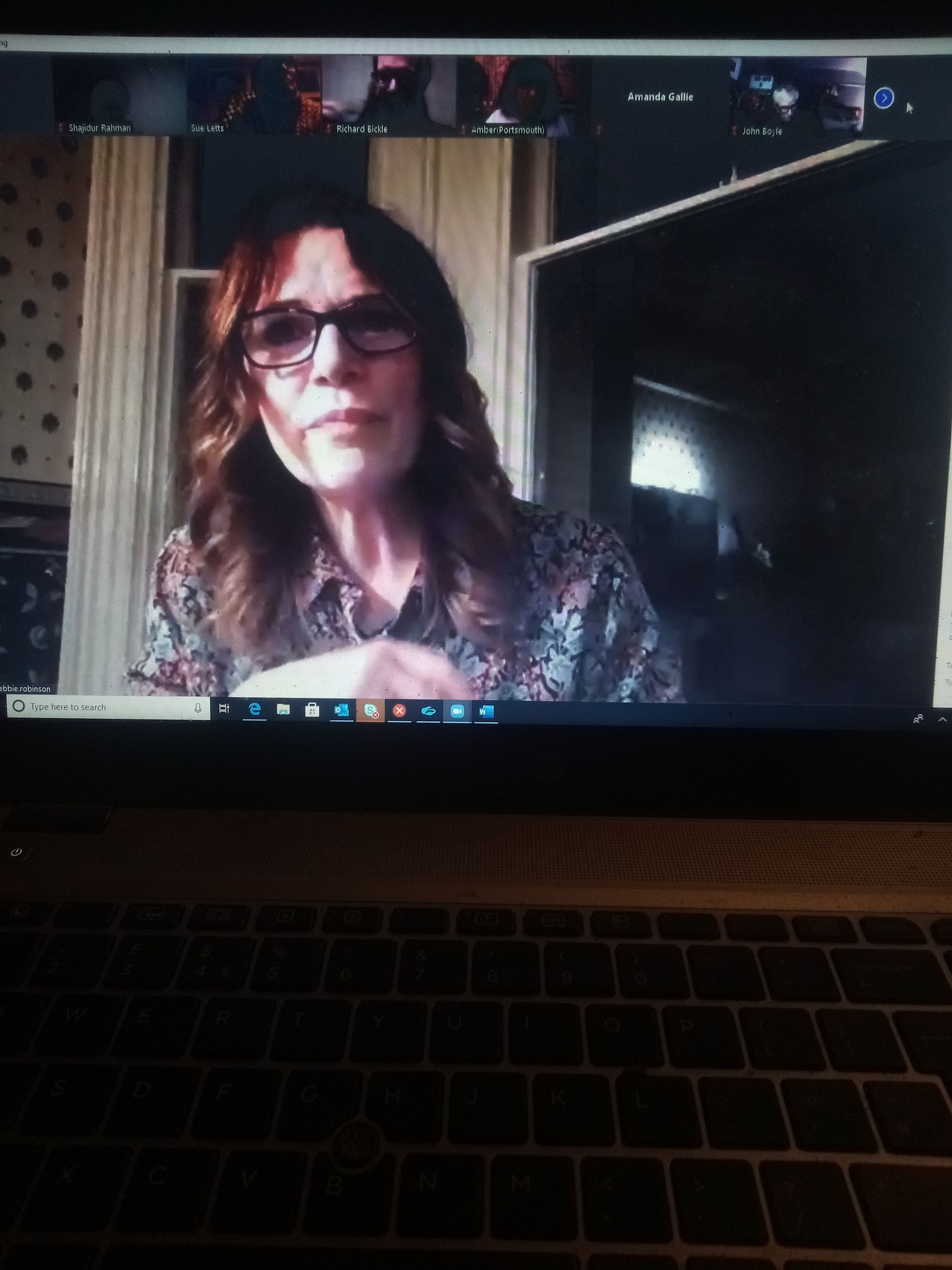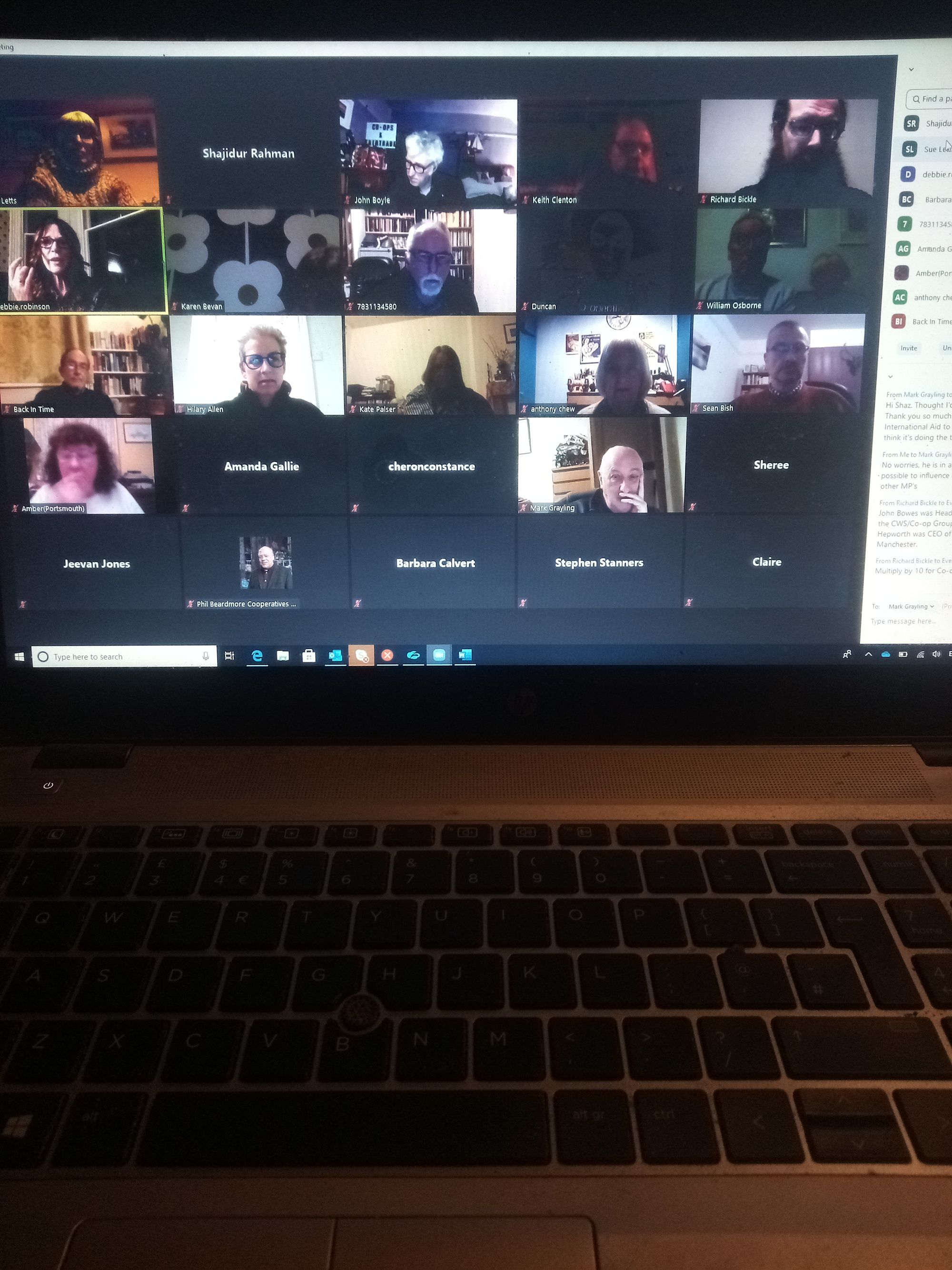Birmingham Co-op History Group Fairtrade Talk with Debbie Robinson

On Tuesday, 2 March the Birmingham Co-op History Group hosted a special talk with the CEO of Central England Co-op Debbie Robinson. Debbie has an extensive history with Fairtrade and the nearly 30 people attending on the Zoom call were excited to learn about it. As the meeting was held on Zoom, it allowed Co-operators from all over the country to participate in this event.
Debbie’s Fairtrade journey started in 1986 when she first visited Ghana as a volunteer. She saw how the suppliers of common crops that were consumed in the UK were treated. She saw the injustice where those working hardest to grow and harvest the food we ate were being treated the worst. This left a lasting impression on Debbie, who in 1987 began working for the Co-op Group.
In 1992 Fairtrade Foundation was formed by campaigning groups such as Oxfam and Christian Aid. By 1994 Debbie had become a buyer at Co-op Group when the first Fairtrade products became available; Clipper Tea and Café Direct Coffee. Debbie, along with others decided to stock these at Co-op Group and was inspired by the difference it was making to those growing these products. They were receiving higher prices than previously, and it was making huge differences to their communities.
In 1997 the Fairtrade Labelling organisation FLO was formed, though Debbie noted that at this point it was still hard to get hold of Fairtrade products. Debbie was trying to form relationships with growers of Bananas in 1997, but it took till the year 2000 for the breakthrough to be reached. It turns out that these growers were already in long term contracts that they couldn’t easily leave. She encouraged the suppliers to form Co-ops to help them reach self-sufficiency. Many suppliers did not realise that they were in poverty.
Debbie spoke about the development of Fairtrade with further trips to Africa, including Kenya and South Africa. In South Africa she saw wine suppliers paid with wine, which exacerbated problems with addiction. She told us about how the relationship with the suppliers needed to be on sanitation, food, health and education.

We learned about how Fairtrade developed. Initially the quality of the product was often sacrificed, meaning that sometimes people were paying more for an inferior product. Fairtrade has grown significantly since the early 2000s. Fairtrade bananas have become the norm, as well as many other products like chocolate. Other supermarkets like Sainsbury’s and Waitrose have also committed in a big way to Fairtrade, which is a success for the movement. There is a drive within Central England Co-op to make Fairtrade products premium like the Central England irresistible chocolate range. Central England Co-op has 400 Fairtrade products with 300 being branded and 100 are own brands. There are £10 million pounds worth of Co-op Fairtrade product sales. £4 million in wine, and about a million in tea and coffee.
The final trip that Debbie discussed was her trip to Malawi. Malawi is one of the poorest countries in the world. Central England Co-op is looking to work with the Co-op College to improve schools in Malawi. There are UK schools twinned with schools in Malawi. Central England Co-op is looking to work with producers in Malawi to make premium seasonal products so the surplus earned by the producer will be higher. Encouraging suppliers to add value to their own products rather than sending them on to others to add value.
When Debbie finished speaking, she answered some questions from the audience on a variety of topics. Including the future of Fairtrade and some of Central England Co-op’s competitors moving away from Fairtrade. It was great to hear our CEO talk about her long and distinguished history in the Fairtrade movement; from being a buyer in the Co-op Group to being the CEO of Central England Co-op. She has championed Fairtrade, and the suppliers who benefit the most from the movement, the whole time.
Membership Matters post by Shaz Rahman, Chair of Western MCC

